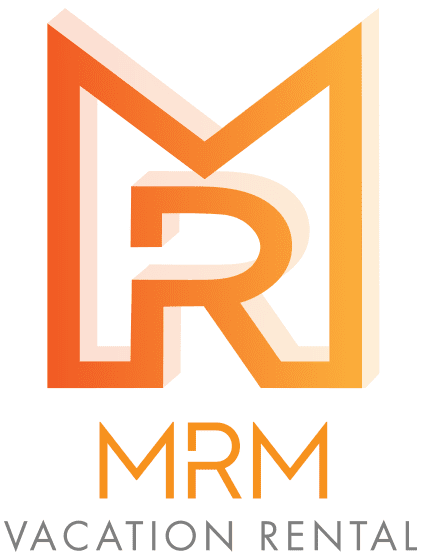What is Defined as a Short-Term Rental in Florida?
A short-term rental is defined as any property that is rented for less than 30 days (or 180 days in some areas) Examples may include vacation houses, condos, apartments, or single-family homes that are let out for relatively short periods and usually through these types of rental websites, which include Airbnb, VRBO, or Booking.com.
Do You Require a License?
In Florida, the requirement to obtain a license depends on both the location of the rental and for how long the rental is used. The two governments, local and state levels, have individual regulations on renting short-term homes. Here are the regulations for both Miami-Dade and Broward counties.
When Do You Not Need a License?
- Renting for Longer Than 30 Days: If your rental period exceeds 30 days, you generally do not need a short-term rental license.
- Non-Rentals: If you are renting a room or a single dwelling unit within your primary residence, the regulations may be more relaxed.
- Specific Locations:
- Miami Beach: If you rent for more than 180 days, you do not need a license.
- City of Miami: Rentals for over 30 days do not require a short-term rental license.
When Do You Need a License?
- Rentals for Periods Less Than 30 Days: Most Florida counties and cities require a license for any rental under 30 days.
- Commercial Rentals: If you intend to operate multiple short-term rentals, you will need a specific license for each property.
- Specific Locations:
- Miami Beach: Apartments rented for 180 days or less require a license. Single-family homes are prohibited for short-term rentals.
- City of Miami: Apartments or houses rented for 30 days or less require a license.
ALSO READ: Do I Need to Change Insurance if I Short-Term Rent My Home?
Types of Licenses
Licenses may vary depending upon the property as well as the city. Following are some general types of licenses.
- State License: The Florida Department of Business and Professional Regulation is responsible for giving out the Florida state license to ensure compliance with tax as well as regulation requirements.
- City License: Issued by the respective city (Miami, Miami Beach, Fort Lauderdale, etc.) for short-term rental operations.
State vs. City License
There is a difference between the state-level license and the city-level License. The state license mainly focuses on tax compliance, whereas the city or county licenses mainly focus on zoning and safety regulations.
- State License: Required by the Florida Department of Business and Professional Regulation for all short-term rental operators to ensure tax collection and remittance. This includes registration with the Florida Department of Revenue for state taxes like sales tax and discretionary sales surtax.
- City License: Most cities require a local permit or vacation rental license. For example, Miami Beach requires properties to be registered with the Miami Beach Vacation Rental Program, while other cities like Miami may require specific zoning clearances and permits.
How to Get a License
To lawfully operate a short-term rental in Florida, you must apply for a specific license. Here is how you can do it step by step:
- Determine the Right License Type: Identify whether your property requires a state license, local permit, or both. Check local zoning regulations to ensure your property can legally be used for short-term rentals.
- Prepare the Required Documents:
- Proof of ownership or lease agreement
- Florida business tax receipt
- Certificate of use (if required)
- Homeowner association approval
- Submit Application: You can typically submit your application online through the appropriate city or county office. The Florida DBPR offers an online portal for state-level registrations.
- Pay Applicable Fees: Be prepared to pay fees for both state and city licenses.
- Schedule and Pass Inspections: Some cities might require a property inspection to ascertain whether it is safe and if it complies with zoning regulations.
- Obtain Local Licenses and Registrations: Once the state license is secured, you will also need to obtain the local vacation rental permit.
- Register for Tax Collection: You must also register with the Florida Department of Revenue for sales tax and tourist development tax collection, ensuring your rental complies with state and local tax regulations.
Other Laws to Consider
Except for licensing and tax laws, there are other important regulations one must be aware of:
- Local and Zoning Regulations: Check zoning rules to ensure your property is eligible for short-term rentals. Some cities and counties have restrictions on the types of properties allowed for rental.
- Health and Safety Standards: Properties must meet local health and safety codes, including functioning smoke detectors, fire extinguishers, and clear exit routes.
- Homeowners Association Rules: If your property is in a community with an HOA, you may need approval before listing your property for short-term rentals.
- Insurance: Ensure you have appropriate insurance coverage for short-term rentals, which may include liability insurance to protect yourself in case of accidents or damages.
Should you hire a consultant for licensing?
The process of licensing can be very complicated, especially if you are managing several properties or operating in different cities. Hiring a consultant can make the process easier, ensuring that all paperwork is done correctly, fees are paid, and inspections are scheduled. With our expert services, you can avoid costly mistakes and ensure compliance with all regulations.
Starting a short-term rental in Florida can be highly profitable, but one needs to know and be aware of all the local regulations. You must remember to get proper licenses, have a place under the zoning rules and comply with tax laws. Whether you’re just getting started or looking to expand, ensure you follow all the legal requirements to avoid fines and penalties. If you’re unsure about the process, contact us for expert consultation and help with licensing.

